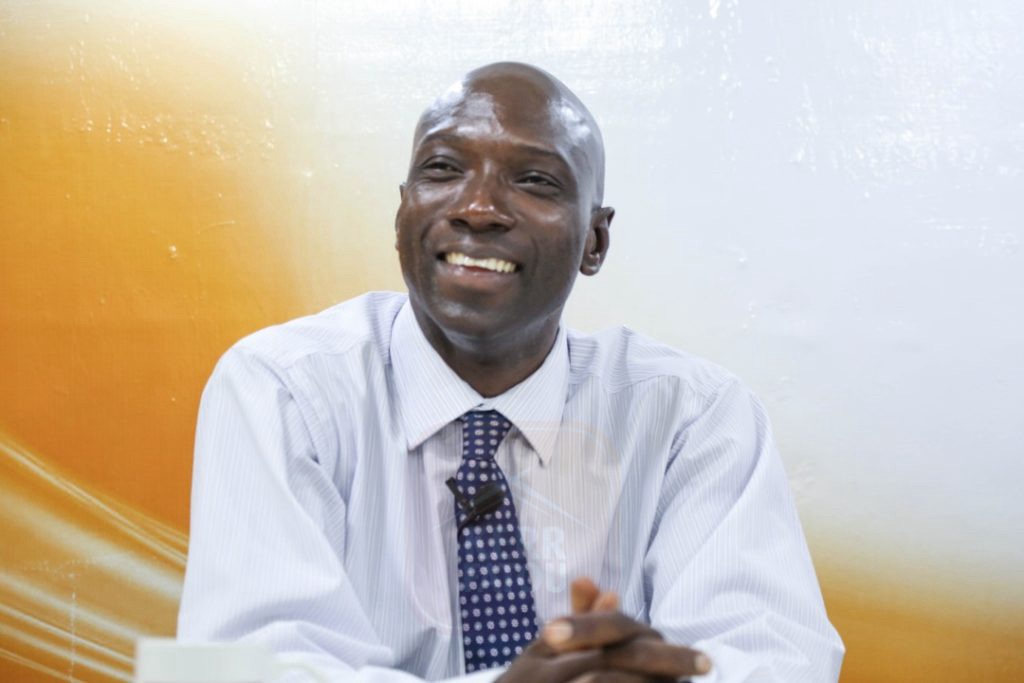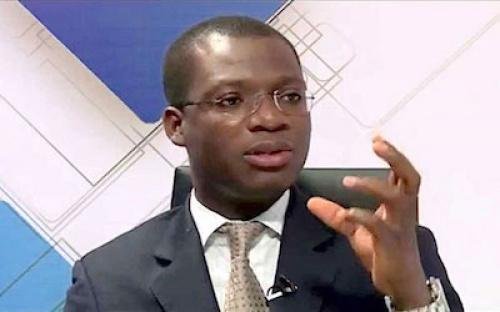Dr. Ousman Gajigo
The recent announcement by the government that it would increase tax is yet another evidence that we have a government that acting in the moment without clear thought to long-term development. The Gambia needs tax reforms but the fact that we are witnessing this tax increase is a reflection of not only poor budget planning and the complete disregard for any kind of reforms at all.
It is not wrong in principle for a government to increase tax. In fact, there can be many good reasons for that. For instance, a government can increase tax rates on certain goods or services to influence consumer behavior in a positive direction. Examples of these could include cigarettes or pollution causing activities. A government would be justified to increase tax rate on a good or service without any fear of market distortion if existing ones are too low or non-existent. Tax rate hikes could also be justified on certain high-income segments of the population to make the tax regime more progressive.
In each of these examples above, the justifications for the increase can be articulated easily during their enactments. It might even be possible to specify exactly what the extra tax revenue generation would enable the government to finance in the future. Most importantly, their proper implementation should not hamper the future domestic revenue mobilization.
In a press conference earlier this year, President Barrow attempted to provide justifications for the tax increase. Unfortunately, there was no credibility in those justifications because his words were at odds with the actions of his government. For instance, he clumsily tried to convey the point that citizens’ tax payment is what allows the government to wean itself from external support and rely more on domestic resource mobilization to carry out development finance. This is correct in principle. But as we saw in the 2024 budget, virtually all of the government’s expenditures across sectors was devoted to recurrent expenditures rather than development finance. Furthermore, an unreasonably large chunk of our budget was allocated to the Ministry of Foreign Affairs where it generates little development returns. This is in addition to an outsizedallocation to a bloated security sector that is almost indistinguishable in size and structure with what the Jammeh regime left us with. Sectors that should be generating economic development such as infrastructure and agriculture end up with far less than they should.
The fact of the matter is that the actions of the Barrow government, of which the recent budget debacle is just the latest, ensure that the country will rely more on outside assistance. It also ensures that the recent tax increase announced by the government will occur more frequently. The president tries to mitigate the tax increase announcement by attempting to differentiate between tax and non-tax revenue. In terms of the real tax problem in The Gambia, this is a distinction without a difference. Because the expenditures are not properly prioritized, there will be persistent budget deficits, just as we have always had and since outside support is decreasing due to partners’ disappointment with the Barrow regime, the only option would be to increase taxes.
The problem with tax in The Gambia goes much deeper than the recent increases announced by the government. The real issue is that the need for tax reform has not been recognized by the Barrow government. The Gambia is still largely operating under the GRA Act 2004. At the time of its enactment, it represented some improvements over the tax system left by the Jawararegime. But there is still significant room for improvement. There was no better time to enact those improvements than in 2017 or 2018.
Tax revenues depend, broadly, on three main factors, which are the tax rate, the tax base and the collection efficiency. The tax rate is the levy that is assessed on some good or service. The tax base is the overall value of the economic activity that is taxed. The collection efficiency is percentage of the tax revenue that the government is able to collect for a given tax rate and tax base.
To clarify this further, let consider corporate income tax for large businesses. The corporate income tax rate of the country is currently 27%. The tax base is underpinned by the number of businesses operating in the country, which determines the business incomes subject to a given corporate tax rate. The collection efficiency is the actual tax revenue that the GRA is able to collect as a percentage of the total corporate tax revenue given the corporate income tax rate and the business tax base.
The tax rate is the easiest component to change. All it takes is a legislative enactment or some regulatory changes. However, while small increases in tax rate would increase the tax revenue, it can only go so far. At some point, increasing the tax rate will actually decrease the tax revenue collected as businesses will do all they can to avoid paying unreasonably high taxes or simply go out of business. Collection efficiency is next in terms of difficulty. But it can be improved with some increase in the workforce of the tax collection agency and better enforcementmechanisms.
The most difficult component to change is the tax base but even a slight improvement in it yields the biggest and long-lasting increase in tax revenue collected. Indeed, a bigger tax base can allow the government to increase tax revenue even with a lower the tax rate. While improvements in collection efficiency can increase tax revenue generation, it quickly runs into diminishing returns because a certain level of draconian tax enforcements becomes counterproductive. The reason why the tax base cannot be changed overnight is because it means higher economic activity such as expansion or creation of new businesses. These are not things the government has direct control over in the same way it has over legislative or regulatory changes. It can only affect these factors through proper policies and strategies, as well as their execution. The annual government budget is the most important instrument through which these strategies and policies executed through prioritization. Their effects are then realized through improvements in the business enabling environment and other areas of the economy. These in turn send signals to investors, both domestic and foreign, that the country is ready for business.
It is instructive to point out one major flaw in the current tax law in The Gambia, which has to do with the corporate income tax. While the corporate income tax rate of 27% looks low, delving a bit deeper reveals a major problem whose correction is long overdue. The current tax code prescribes that a business should pay the higher of the following: 27% of net income or 1% of gross revenue if audited (otherwise, 2%). While this may raise income in the short-term, it will actually depress revenue mobilization in the long run as it will likely kill many businesses and cause a contraction of the tax base.
The best practice is that is to limit tax assessment to net income. Many businesses experience negative cashflows in their initial years of operation, particularly those that require significant amount of capital expenditures to start with. In fact, the types of business we should be encouraging in The Gambia are those that require significant capital expenditures. The reality is that these are the businesses that will have negative net income for the first few years. When the current GRA rule is applied to such businesses, they are forced to pay taxes even when they incur losses, increasing the likelihood of the business going under.
When the GRA Act 2004 was passed with that outlandish clauseon corporate income tax, many understood it as a desperate act by an authoritarian regime that was pressed for income as grants from development partners dried up and foreign direct investment retreated. The expectation was that a transitional government would immediately correct this problem in the tax code. Alas, just like other needed reforms, the Barrow regime either does not consider this a real problem or is oblivious to its ramifications.
In the absence of that needed reform, the passage of budgets like the ones we have been seeing creates significant amount of fiscal pressure. No matter how efficient the GRA is in collecting tax revenues, the mismatch between the expenditure profile in the budget and the long-term development needs will push the government to look for ways to increase revenue today instead of thinking long-term. This in turn will contract the tax base, necessitating further tax increases in the future. The budget deficit, which has been a reality every single year of Barrow’s regime, will remain a permanent feature of his government.




